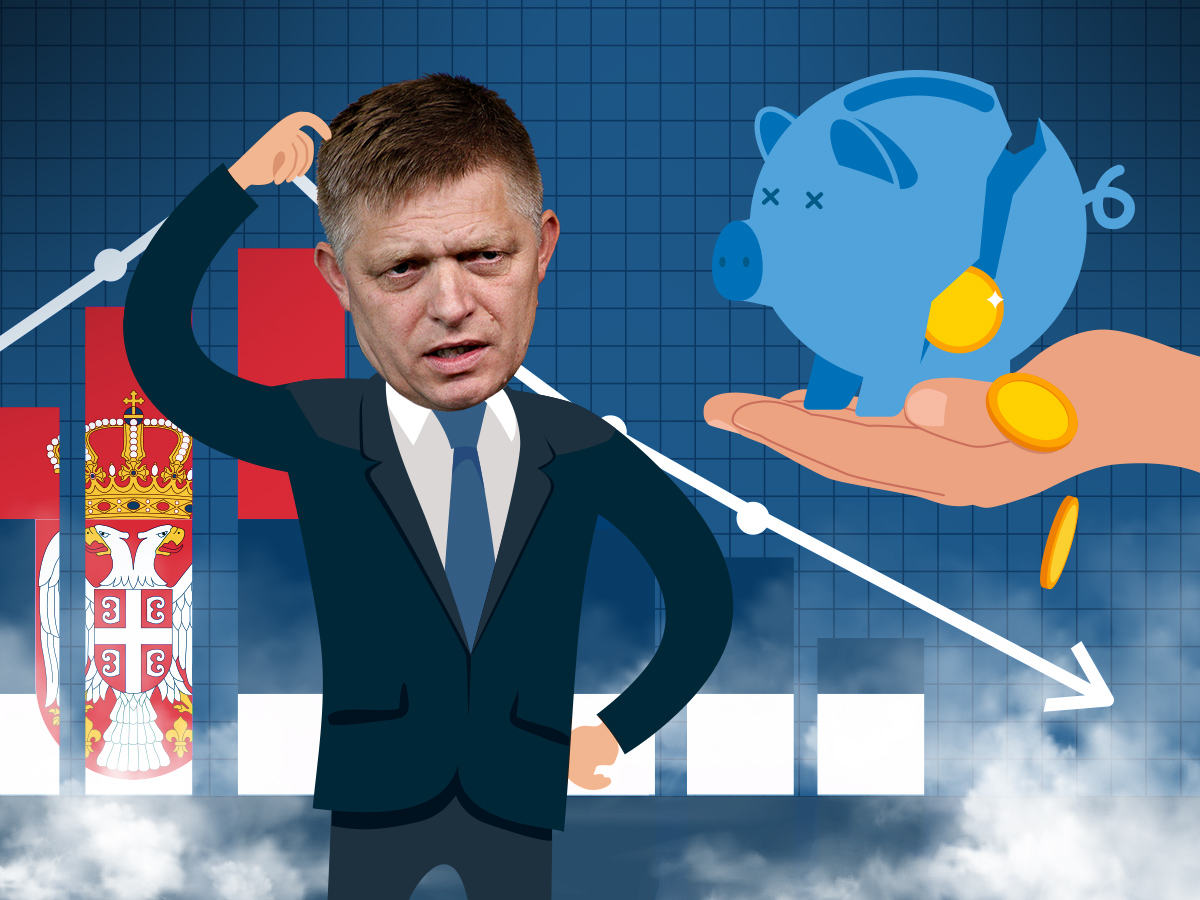When critics of the newly elected Prime Minister Robert Fico spread their fears around Europe they should probably rather start with observing how the previous ‘Pro-European’ governments have performed. They would definitely find a sobering image of a messed-up political scene, a decreasing economy, and insufficient financial policy when it comes to the relations with Brussels. This legacy puts enormous burden on the newly elected government but it also makes us understand the voters’ mindset which created space for major political changes in Slovakia.
Many European journalists and politicians from the mainstream had been echoing their fears already before the elections in Slovakia when polls suggested that Robert Fico had high chances to get back to governing the Central European country. Fico has indeed won the elections and now many hold back their breath on how things will proceed in Slovakia. Some like to think – naively – that the recipe for success in a country has to be based on a Pro-European governance having ideal relations with Brussels. If you follow the instruction coming from the EU you will definitely get what you need – money. Well, Slovakia’s example proves the opposite.
It is one thing that the political life in Slovakia has never stabilized ever since Fico left office in 2018. For the past five years five prime ministers served (even countries like Ukraine managed to do better than this). Therefore they obviously could neither fulfil their promises nor manage the coalition to work sufficiently. As the Pro-European political forces kept competing with each, they have ‘successfully’ led the country to the edge of economic collapse.
While around the 2000’s the Slovak economy was often mentioned as an example to follow in the region, for the past few years it has performed well below the European average. Slovak economy has already been suffering before the Covid started. The pandemic and all its consequences have boosted the problems. As of 2023 the state debt grows with 5-7 billion USD on a yearly base which means it is in the worst state of its history. Slovakia’s GDP per capita is near the bottom of the Eurozone and its budget deficit is one of the biggest. According to forecasts, it will reach nearly 7 percent this year. Surely not the best prospects when there is a war in the neighbour combined with an energy crisis.
Interestingly a Pro-European leadership doesn’t automatically ease the flow of EU funds. While Slovakia had an EU-conform government for years they still couldn’t manage to allocate their spending properly. Slovakia was among the worst-performing member states in the EU when it came to the budgetary period of 2014-2020. Bratislava has reportedly not managed to spend some 6 billion EUR of the EU support. It raises questions partially on the government’s real commitment to Brussels but even more on the competencies of the relevant decision makers in Bratislava. Countries having worse relations with Brussels could manage to deal with the EU funds much better than the previous government in Slovakia.
Slovak National Bank was also pessimistic this spring when they publicly mentioned the seriously delayed use of the EU funds. The country is basically cut off from a significant amount of financial support due to some bureaucratic obstacles. Fico’s government has certainly some room for improvement in the upcoming period.
While the Pro-European Slovak governments have been performing badly in terms of economy, they could hardly show some results in foreign policy either. They have had a rather modest role in the V4 group while the war in Ukraine has led to a social challenge for Slovakia. While the government was eager to follow the US and EU led mainstream, the society has been traditionally more divided when it comes to the Russia factor. The results of the elections have proven this fairly.
Fico’s predecessors have also spent much on the military aid to Ukraine, which later proved to be opposed by the voters. They sent to Ukraine among others an S-300 air defence system and some old MiG-29 fighter jets. The latter ones are still not used by Ukraine but probably weakened Slovak defence capabilities. For a while they had to rely on some V4 countries’ support for their air defence. While they seem to manage to replace the lost equipment with new stuff from the West they still wait for billions of refund from Brussels.
The past few years of Slovakia have proven that it is a simplified narrative to judge a country on how good relations it might have with the European Union’s institutions and the decision makers in Brussels. By winning the elections Robert Fico got a very challenging legacy from his Pro-European predecessors. It also raises the question on how he should approach Brussels. Whether to follow the politics of the former government or to be more confrontative when it comes to different opinions and difficult decisions. Based on the latest Slovak experience he should finally start to represent the real interests of Slovakia even if it will cost some conflicts with the European Union. We should expect some real changes in this regard if he keeps his election promises.
